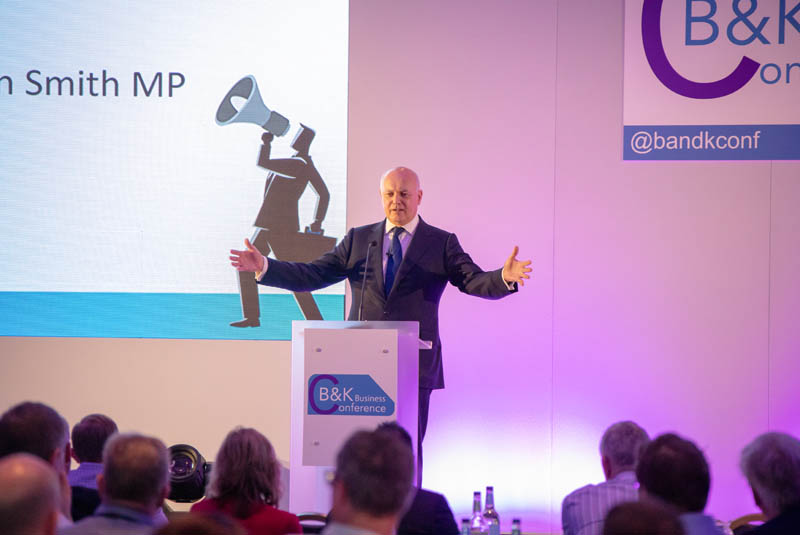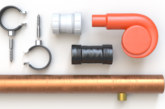
Delivered by the Bathroom Manufacturers Association (BMA), PBM reports back from the recent Bathroom & Kitchen Business conference.
Based upon the theme ‘Building a new future’, the BMA’s Bathroom & Kitchen Business conference was held at the Vale Hotel and Resort in the Vale of Glamorgan in October and was attended by 170 delegates from across the industry.
Facilitated by financial journalist Sally Bundock, this year’s keynote speaker was prominent Brexiteer and former Secretary of State for Work and Pensions, Iain Duncan Smith MP for Chingford and Woodford. Having campaigned to leave the EU, he argued why he believes Brexit would still be good for business, maintaining the notion that leaving the EU — despite the current impasse in Government — would open up trade opportunities with the rest of the world.
An impressive speaker programme included Clare Curtis-Thomas of construction product industry certification body British Board of Agrement (BBA). Clare gave a presentation about how the Government’s attitude to compliance is changing, particularly in the wake of the Grenfell disaster.
Mark Berrisford-Smith, Head of Economics for HSBC UK commercial banking, then outlined his thoughts as to how businesses can prepare for economic changes both in the run-up to Brexit and following the UK’s departure from the EU.
In addition to changes in the political landscape, the Bathroom & Kitchen Business conference also considered the ways in which society is changing. For instance, behavioural therapist William Higham from The Next Big Thing provided an insight into how businesses can track these changes, and even influence consumers’ needs to adapt to provide new revenue streams.
His theories were supported by James Lawrence, founder and owner of the plumberparts.co.uk website and YouTube channel — which offers a plumbing installation service to homeowners — and talked about how to harness the use of video content and social media to boost a brand.
In conjunction with market analyst Trend Monitor, the BMA also revealed findings of research into consumer behaviour to identify the influencing factors which affect bathroom purchasing. This saw 517 participants complete an online survey about bathroom purchasing trends, with a further 50 people taking part in diary-based activity detailing their use of space for its Behind the Bathroom Door report.
BMA CEO Yvonne Orgill — who announced her intention to step down from the full-time role in 12 months’ time — said the study revealed consumers were influenced to buy products if they had more information about water efficiency.
She said: “The industry needs to wake up to the fact that they are going to have to take this issue seriously. Our results show that more than 80% of respondents said water efficiency was quite or very important when purchasing a WC or a shower, yet almost 40% were not made aware of how much water the products would use.”
She added: “We know that manufacturers have water efficient products and they have the Water Label that they can use to demonstrate this. There are already 143 brands supporting it with 11,000 products, if more companies took the Water Label on board, we could collectively make more of a difference and they would sell more products too — a win-win for all.”
For more information on the BMA visit www.bathroom-association.org.uk.









